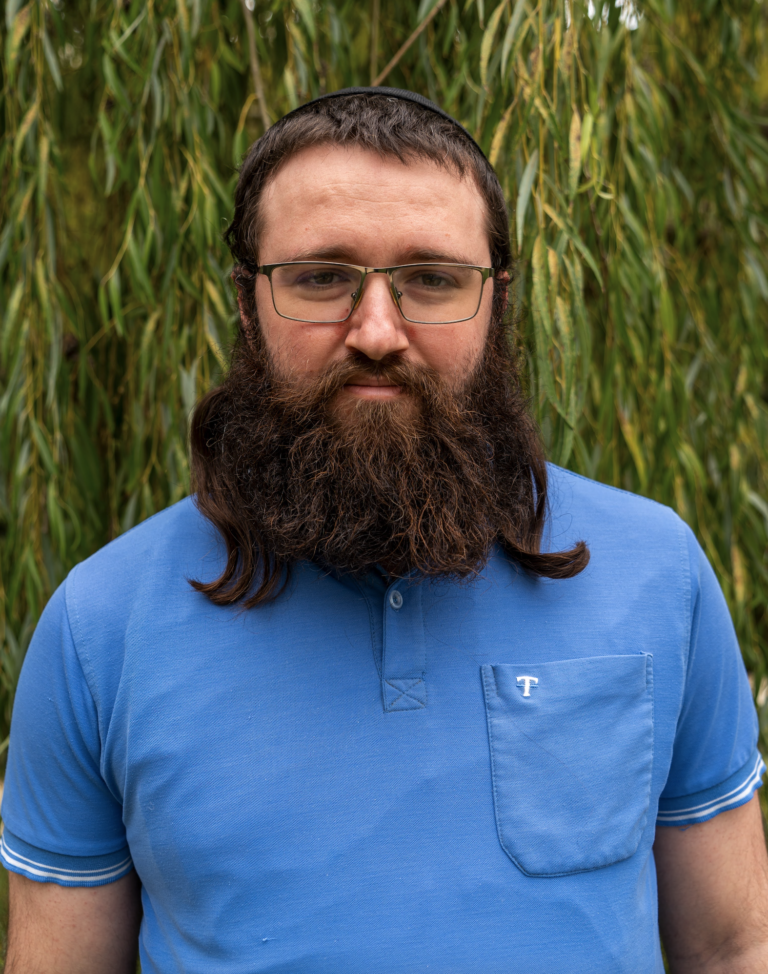
Publications:
`I Too Speak the Words of God’: A Jewish Learned Woman Faces an Early Modern Rabbinic.
Court, Jewish Quarterly Review 115.2 (Forthcoming 2025).
The Scientific Method, the Atomist Theory, and Rabbi Moshe Chefetz’s Bible Commentary.
(1666–1710), Zion 88, no. 1 (2022): 75–102 [Hebrew].
The Lulav: Early Modern Polemical Ethnographies and the Art of Fencing, Religions 12, no.7: 493 (2021).
Benyamin Dias Brandon’s Orot Hamizvot (1753): Halacha and Polemics in Eighteenth-Century.
Amsterdam, Studia Rosenthaliana 46, no. 1-2 (2020): 187–208.
The Use of Functional Tests in Fitness for Work Assessments in Responsa Literature: (with Yehuda Lerman), Ha-refuah 157 (6) (2018): 395–397 [Hebrew].
Rabbi Moshe Chefetz, in: The Encyclopedia of Jewish Skepticism (ed. Yoav Meyrav, Zahi Sleiter), forthcoming 2024.
Dr. Ahuvia Goren
Early Modern Italian Intellectual and Cultural History, Jewish Thought, History of Judaism, Early Modern Science, Secularization Studies.
Medieval and Early Modern Intellectual History, Philosophy of Religion, Political Theory, Jewish Law.
I am an intellectual historian specializing in early modern Jewish thought in western Europe, with a focus on Italy. My work examines the intersections between theology, science, and secularism, with a particular interest in questions of cultural translation, reception, and the critical examination of historiography.
My doctoral research, completed in September 2024, and conducted as part of the ERC project JEWTACT (“Translation and Intercultural Transmission in Early Modern Europe”) at Ben Gurion University, examines the role of doubt and uncertainty in early modern (1550-1815) Jewish culture in Italy. It explores the interplay between communication networks, unbelief, and philosophical skepticism in early modern Jewish Italian society, revealing how various forms of uncertainty influenced both the social and intellectual dimensions of this Jewish context. Challenging the common assumptions that equate faith with absolute certainty and link new scientific ideas with skeptical openness, my research offers a more nuanced view, demonstrating how doubt played a crucial role in strengthening the religiosity of early modern Italian Jews, as well as how dogmatic systems supported alterations in their philosophical and scientific reasoning.
At The Polonsky Academy, I will be writing an intellectual and cultural history of atomism within the Jewish context. European intellectuals often engaged with atomism through two lenses: as a widely accepted hypothesis about the physical world and as a metaphor for modern European morals and politics, especially in relation to emerging state theories. My project will be the first to comprehensively explore atomist theory in modern Jewish thought. By analyzing a diverse range of sources—philosophical and theological treatises, poetry, and newspapers—I will investigate how Jewish thinkers responded to atomism both as a scientific theory and as a metaphor for moral and political dynamics within the Jewish community and the European society. This dual examination will provide new perspectives on Jewish scientific engagement and perceptions of secular morality and politics, which are crucial to understanding Jewish modernity.